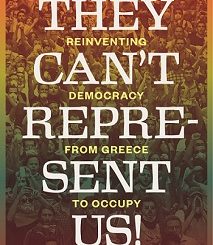
Obama’s Long War in the Middle East
Source: The Nation
There’s a frightening enthusiasm for war among pundits—and now the public seems ready to go along too.
Do not be misled by White House double-talk: the United States is embarking on another Long War in the Middle East. This one will belong to Barack Obama, and it may extend beyond his presidency. Secretary of State John Kerry said as much. “It may take a year. It may take two years. It may take three years. But we’re determined it has to happen,” Kerry vowed.
Actually, it may take ten years, or longer. Americans have heard this bold, brave talk before. It has led to costly failure for our country and horrendous losses for humanity. The United States went to war in Afghanistan in 2001 and finally intends to withdraw in 2016—making it the longest war in US history. The Taliban, though, are almost as strong as ever, merely waiting for US troops to leave. Washington launched its unprovoked war of aggression against Iraq in 2003, conquered the country and installed a new government, but troops were not withdrawn until the end of 2011. Now Iraq’s civil war has reignited, only on a much broader front that includes the devastating civil war next door in Syria. Fight we must, Obama says. It’s as if we’ve learned nothing from our post-9/11 failures.


